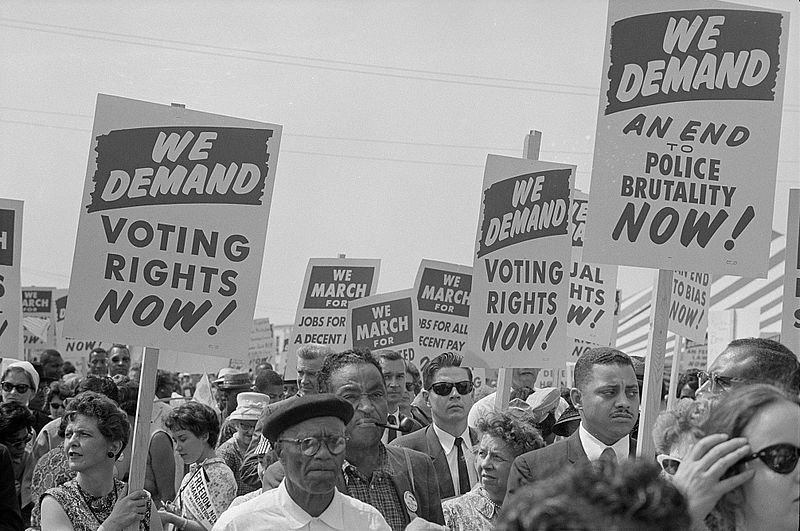Voting is your right. Don’t let anyone take it from you.
October 30, 2018
The United States has an unfortunate history of voter suppression. It did not die with the passing of the Voting Rights Act in 1965 like Americans hoped. In 2018, voter suppression looks like malfunctioning voting machines, blocking 53,000 voter registration applications in Georgia and signature-matching laws. United States citizens have a right to vote; knowing your rights protects voters from further suppression.
The Voting Rights Act, signed into law by President Lyndon B. Johnson, was presumed to be the answer to voting discrimination and suppression. The made literacy tests illegal. Federal overview of voter registration was provided as part of the law, and poll taxes could be investigated by the U.S. Attorney General. Poll taxes became illegal on both the state and federal level by 1966.
“When the Voting Rights Act was passed in 1965, my grandmother had a new way to speak, nearly 70 years into her life,” said Gabrielle Starr, president of Pomona College, in her open letter to college students as published in the Washington Post.
Voting is a chance for individuals to speak their concerns and use their voices. A single vote has the ability to shape the future of the country.
Many states have found ways around the Voting Rights Act. Voter rolls are being purged in states like Indiana, deleting voter registration status. Rural Native Americans are being turned away at the polls for lack of proper identification proving their address, despite no requirement to have street addresses on reservations. In states like Florida and Kentucky, citizens with past convictions are prohibited from voting until granted a full pardon and restoration of their civil rights by the governor. In Florida, a five to seven year waiting period is required and some crimes that remove the chance of rights ever being restored.
In order to combat voter suppression, voters are encouraged to know their rights to avoid confrontation at the polls.
When asked in a short questionnaire, several College of Dupage students said they will not vote in the upcoming election because they did not register. Members of the Student Leadership Council spent several weeks on campus trying to encourage people to register to vote, a key focus in their agenda for this semester.
Voters in Illinois have of same-day registration. Even if you did not meet pre-registration deadlines, voters can go to their respective polling place, register and cast their vote. This can also be done to change out-dated voter records. For example, if you recently moved and have a new street address, voter registration can be updated on the day of the election.
Vote-by-mail and absentee voting is also available. For those unable to vote physically at their polling place, Illinois allows for votes to be sent through the mail. Absentee ballots are sometimes sent to voters by election candidates, but can also be obtained online at anytime at https://absentee.vote.org. Absentee ballots must be sent out before the election day.
Illinois also does not have voter identification laws. If you are turned away at the polls due to insufficient documentation, that is illegal. Illinois residents do not need to provide forms of identification in order to receive their ballot or to register.
Convicted felons in Illinois are also able to submit a vote. While imprisoned, citizens cannot cast a vote. Voting rights are immediately restored upon release. Each state has varying laws in regards to felons casting a vote, but ex-offenders in Illinois are encouraged to re-register to vote once their rights have been restored.
If at any point you are turned away from the polls, you should not walk away. All prospective voters are allowed to ask for a provisional ballot. By law, one must be provided to you. A provisional ballot is a way to vote when any questions of eligibility exist. Actual eligibility must be resolved before provisional votes can be counted to determine the result of an election.
“Each of us who has the privilege to speak our loudest voice — to vote — must do so,” said Starr.


















